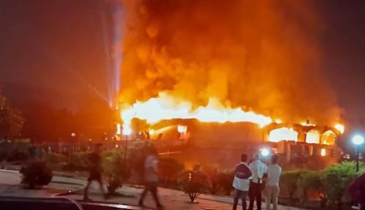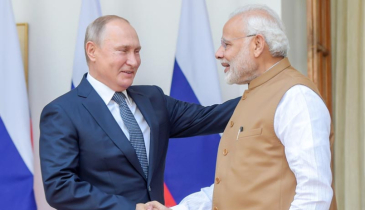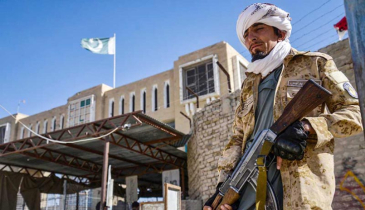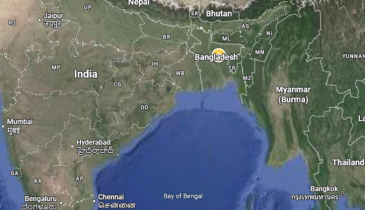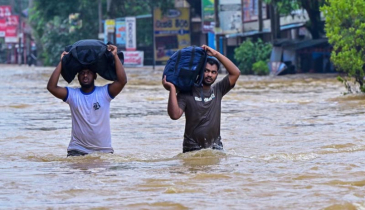Bangladesh-India agree to stop border killings
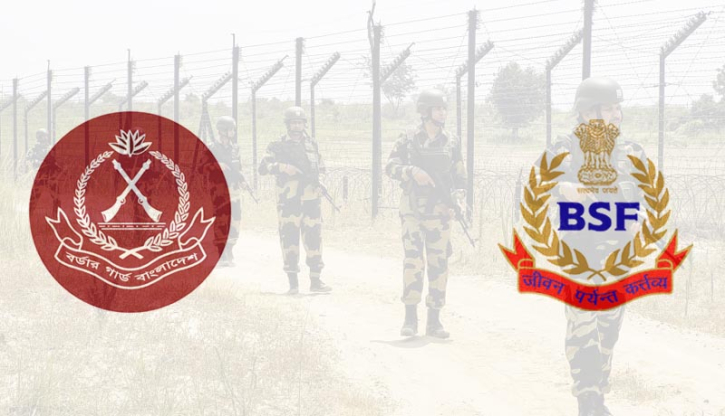
Bangladesh and India have reached a broad agreement to eliminate border killings, smuggling, and illegal crossings while ensuring the proper repatriation of each other’s nationals in line with legal procedures.
Both sides also pledged not to undertake development projects within 150 yards of the international zero line, aiming to reduce tensions in sensitive areas.
The understanding was formalized in a joint statement issued at the conclusion of the four-day Director General (DG)-level border conference held at Border Guard Bangladesh (BGB) Headquarters in Dhaka’s Pilkhana.
The Bangladeshi delegation, led by BGB Director General Major General Mohammad Ashrafuzzaman Siddiqui, included 21 members representing key ministries and agencies such as the Office of the Chief Adviser, the Home Ministry, Foreign Affairs, Shipping, Roads and Highways, Land Records, Joint Rivers Commission, and the Department of Narcotics Control. The Indian side was headed by BSF Director General Daljit Singh Chaudhary, accompanied by 10 senior officials from India’s Home Ministry, External Affairs Ministry, and the Indian High Commission in Dhaka.
Addressing border killings and push-ins
The BGB chief voiced strong concerns over the continued deaths of Bangladeshi nationals from BSF firing and cross-border violence, calling the incidents “unacceptable.” He urged India to halt such practices and adopt humane border management measures.
In response, the BSF chief assured that India would adopt stricter precautionary measures, expand night patrols in vulnerable areas, and increase joint initiatives to reduce fatalities. Both sides agreed to work towards “zero civilian casualties” at the border.
Bangladesh also raised the issue of illegal push-ins of Indian nationals and Forcibly Displaced Myanmar Nationals (FDMNs) into its territory. The BSF assured Dhaka that any Bangladeshi citizens residing illegally in India would be returned following mutually agreed procedures, avoiding unilateral actions
Tackling smuggling and cross-border crime
Both border forces stressed the importance of the Coordinated Border Management Plan (CBMP) to combat smuggling of drugs, firearms, explosives, fake Indian currency notes, gold, and other contraband. They agreed to share real-time intelligence, exchange investigation reports of traffickers, and increase vigilance to break smuggling networks.
The delegations also highlighted the need for community engagement to discourage border residents from participating in crimes such as human trafficking, intrusion, and tampering with border pillars.
Border infrastructure and riverbank protection
On infrastructure, both nations agreed not to build development projects within 150 yards of the zero line without mutual approval. They committed to expedite stalled projects, particularly riverbank protection works already approved by the Joint Rivers Commission, to prevent erosion and protect livelihoods in riverine border areas.
Bangladesh pressed for permanent border pillars at Muhurir Char in Feni and settlement of outstanding demarcation issues along the Ichhamati, Kalindi, Raimangal, and Hariabhanga rivers. The BSF DG promised to forward these issues to India’s concerned ministries for resolution.
Technology, connectivity and cooperation
The meeting also discussed progress on the “Connected Bangladesh” Project, which seeks to lay optical fiber networks through the Tin Bigha Corridor to connect Dahagram. The BSF assured it would push Indian authorities to resolve pending hurdles.
Both sides reaffirmed their “Zero Tolerance” stance against terrorism and armed insurgent groups operating across the border. They pledged real-time information sharing to foil cross-border militant activities.
Airspace coordination
Another important agreement was reached on preventing airspace violations. To avoid future misunderstandings, both countries will now share real-time information on pre-scheduled flights and keep each other updated on military or civilian aviation movements close to the border.
Reaffirming partnership
The chiefs of BGB and BSF expressed satisfaction with the outcome of the conference, describing it as a step forward in building trust and ensuring long-term stability along the 4,096-kilometer border—the fifth-longest land boundary in the world.
Both sides reaffirmed their shared commitment: to maintain the sanctity of the international border, protect border communities, and advance cooperation not only in security but also in socio-economic development of vulnerable regions.
.png)


